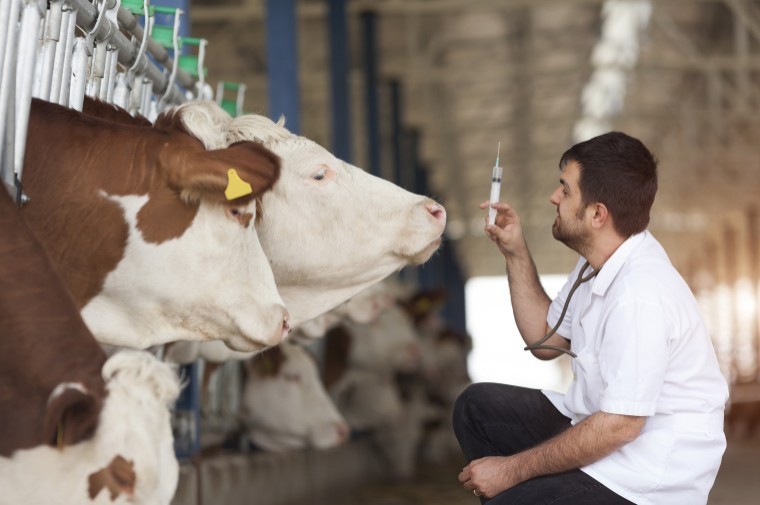“This doesn’t teach grandmothers to suck eggs,” said Hugh Broom, who keeps sheep and beef cattle at Sondes Place Farm near Dorking, Surrey. “It helps to understand why vets are making the decisions they are making about antibiotics.” Mr Broom – who has already joined the programme – is chair of the NFU South East livestock board; he chairs the NFU beef group; and was the beef farmer on the Responsible Use of Medicines in Agriculture Alliance (RUMA) targets task force. The task force looked at ways to minimise antibiotic use in each sector of farming, and one of these was through training.
Launched at the House of Lords, the animal medicines best practice (AMBP) programme was devised by the National Office of Animal Health – which represents the UK animal medicines industry – working with farmers, vets, RUMA, the Veterinary Medicines Directorate (VMD), the British Retail Consortium (BRC) and academics.
Joining the online training programme is voluntary, but everyone who completes the course successfully will have a certificate which can be used as a record for Red Tractor assurance scheme inspections. From 1 June, it was a Red Tractor recommendation that at least one person on a farm should have some training in the responsible use of antibiotics.
There is a set of modules for the dairy, beef, sheep and pig sectors, including two core modules and a sector focus module. The core modules cover the fundamentals of antibiotics, antibiotic resistance and responsible use with a mix of theory and practical applications. The focus modules address key areas of interest with a broad choice for the beef and dairy sectors.
The online farmer training costs £59.95 plus VAT for the two core modules and a sector focus module. A farmer with beef and sheep will pay £59.95 for the two core modules and a beef sector focus module. However, if he or she wants to complete a sheep sector focus module, it will cost another £59.95. Training modules are available for farmers to access at www.noah.co.uk or direct from Lantra ata href=”http://www.elearning.lantra.co.uk<”> www.elearning.lantra.co.uk< Lantra offers a range of land based and environmental training and qualifications. In future, vets will also be able to access resource materials, enabling them to provide training for their clients.
Biosecurity minister Lord Gardiner said: “The UK is at the forefront of global efforts to tackle antibiotic resistance. Recent statistics show there has been a 27% drop in use of antibiotics in food producing animals in the UK since 2014 – meeting a government commitment two years early.
“Our farmers and vets must be commended for driving down antibiotic use in livestock to this all time low – setting an excellent example for others around the world to follow. But it is vital we continue making progress.”
At Sondes Place Farm, between 80 and 100 Aberdeen Angus cross dairy beef calves are reared each year. They all come from a single dairy farm, where they are vaccinated against pneumonia before they leave. “We know the health status of the farm those animals are coming from,” said Mr Broom.
Last year, 350 ewes were lambed, and where possible, a vaccine was used to prevent foot rot. As a consequence of this animal health policy, last year Sondes Place Farm used two 200 millilitre bottles of the antibiotic alamycin, nearly all of which coped with small incidents of pneumonia in calves. “Even if you vaccinate for pneumonia, you cannot vaccinate for every strain,” said Mr Broom.
On dank, foggy days when the calves are housed, Mr Broom will also use a Provita Promist machine which is like a leaf blower and produces a fine mist of organic acids, essential oils and wetting agents. This can kill any viruses in the calves’ lungs.




